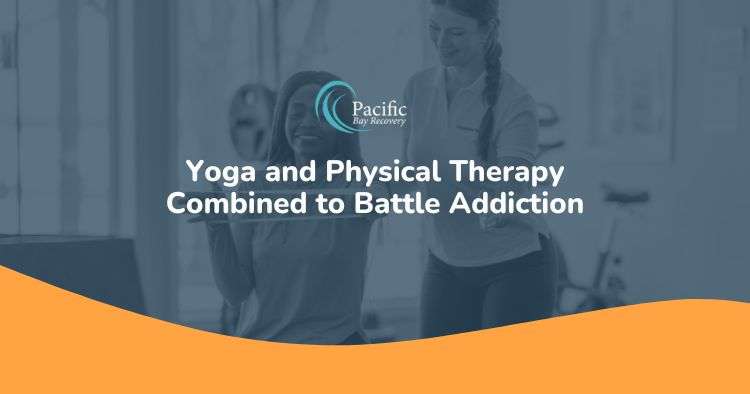In recent years, roughly 21.4M people in the U.S. who were 12 years of age and up battled with substance use disorder, equating to around one in every 12 adults in America, according to the NSUDH (National Survey on Drug Use and Health).
Battling Addiction
There are several programs and methods available to battle addiction, from complementary to alternative, to traditional. An increasing number of programs are concentrating on the “whole person” or a holistic approach encompassing various tools and methods of helping to enhance, maintain, and achieve recovery.
Yoga is an adjunct or complementary health practice that’s commonly considered a natural type of medicine. Adjunct is a word that means “in addition to,” not “in place of.” The practice of yoga is usually beneficial if used along with other types of traditional methods of substance use treatment.
Can Yoga Help with Addiction?
The practice of yoga for addiction might actually assist in balancing some areas of the body and brain that are affected by drug use in a natural way. Besides the physical elements of yoga, there are also several emotional benefits. While practicing yoga, individuals learn to regulate their breathing, are attuned to their bodies, and are expected to listen to their bodies. It creates self-awareness of how things might make someone feel a specific way in a nonjudgmental manner.
In concentrating all energy inward, people learn to take ownership of the way they feel, as well as gain control of themselves and the subsequent actions they take. When they do so, they also may become more self-confident and self-reliant. For example, in recognizing cravings once they happen and not trying to give in to them or avoid them, a person might have the ability to better cope with and manage those feelings if they’re more physically aware of them once they arise.
In addition, yoga may encourage individuals to eat better, increase energy levels, as well as improve a person’s quality of sleep that might be disrupted by alcohol or drug withdrawal symptoms. Once people physically feel better, they have the ability to better deal with stress and anything they might encounter during that day. Improved sleep means lower irritability levels and a clearer head. Physical exercise also improves self-image, since healthy habits may also improve the look of the physical body.
Yoga goes further than just stretching. It’s beneficial as part of a substance use rehab program and may also be independently practiced. Yoga, when used along with other types of traditional practices of therapy, may be an excellent adjunct therapy that people can practice all throughout their lives to improve their clarity of mind and relax whenever they need to.
Kinds of Physical Therapy to Treat Addiction
Pacific Bay Recovery offers recovery treatment that uses a multidisciplinary approach aiming to heal the whole person — spiritually, physically, and mentally. In conjunction with psychotherapeutic modalities with a goal of healing the soul and mind, we offer a variety of services and therapies focusing on holistic wellness, which includes mindfulness and meditation, in addition to recreation-based therapies. Our PT for addiction team plays a critical role in the planning and generation of our body-related treatments and offers other types of specialized services, which include massage therapy, yoga, strength training, and exercise therapy.
Combined Treatments of Addiction
Normally, physical therapy is related to recovering from surgery, illness, and injury. However, struggling with substance abuse or addiction may come with several of the same symptoms; addiction might be so all-encompassing that basic health gets neglected, which leads to issues such as weakness and muscle atrophy, pain, and nutritional deficiencies. Physical therapy — exercise (like yoga) and massage components alike— has also been proven to help relieve mental health factors like anxiety or stress– common substance abuse side effects.
Plus, a lot of the ones who struggle with addiction avoid getting medical help for either mental or physical ailments, which may have a dual effect of enabling poor health to grow worse and also promoting self-medication with more alcohol or drug use. At Pacific Bay Recovery, a lot of the patients we admit enter our facility with physical health problems, and our team knows that helping them heal those issues is just as critical as treating their addiction. Physical ailments and addiction are so closely connected that the odds of relapse are a lot greater if triggering physical concerns are permitted to go on beyond treatment.
For more information on yoga and physical therapy combined to battle addiction, please feel free to get in touch with our rehab center San Diego, Pacific Bay Recovery, today at (619) 350-8220.


